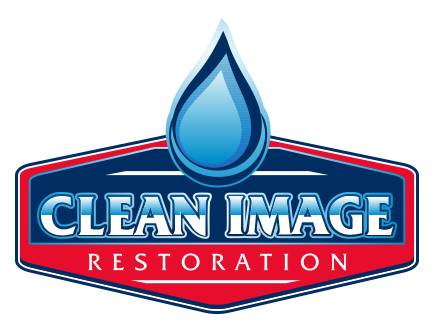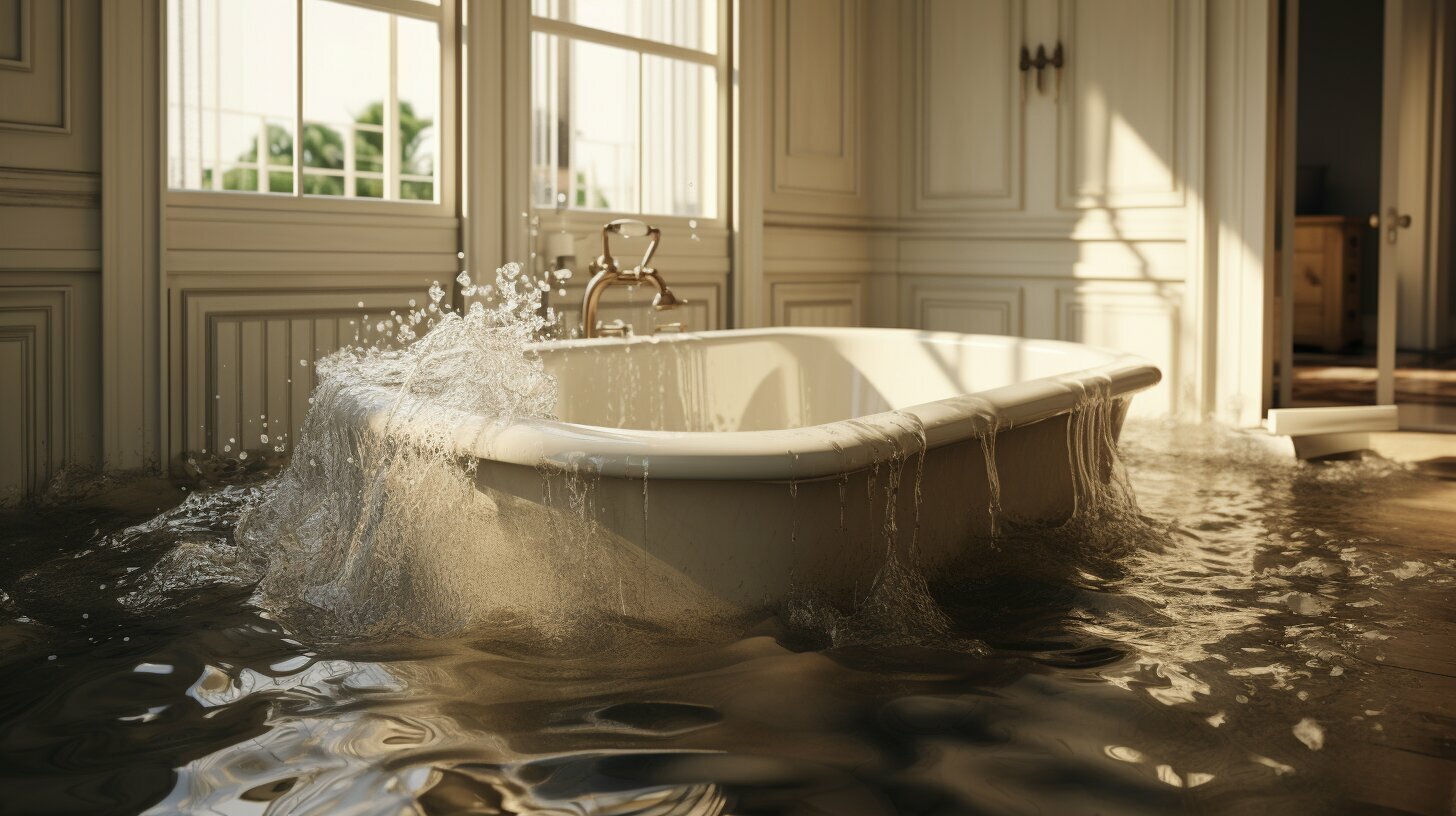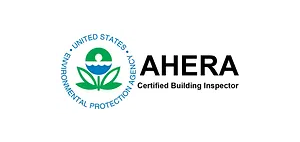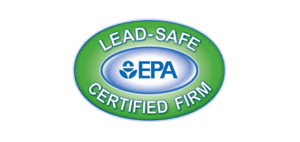Water damage can occur from a multitude of sources, and understanding where it comes from is crucial for preventing and addressing potential issues. Flooding, severe weather conditions, hidden leaks, sewage backup, clogged gutters, faulty appliances, and condensation from air conditioning units are common causes of water damage. Even a small amount of water can lead to significant damage, including mold growth, damage to building materials, furniture, electronics, and even structural issues.
Key Takeaways
- Water damage can come from various sources such as flooding, severe weather, hidden leaks, and sewage backup.
- Even a small amount of water can cause significant damage to building materials, furniture, electronics, and the overall structure.
- Promptly addressing water damage is necessary to prevent mold growth and further structural issues.
- Hiring professional water damage restoration services is recommended for proper assessment and repairs.
- Regularly maintaining gutters and checking for leaks can help prevent water damage.
Preventing Water Damage and Dealing with Its Consequences
Preventive measures and prompt action are key when it comes to dealing with water damage in your home. Water damage can occur from various sources such as flooding, severe weather, leaks (including hidden ones), sewage backup, clogged gutters, faulty appliances, and condensation from air conditioning units. Even a small amount of water can cause significant damage, leading to mold growth, damage to building materials, furniture, electronics, and even structural issues. Therefore, it is crucial to address water damage promptly to prevent further damage and the spread of mold.
To prevent water damage, it is essential to take proactive steps. Regularly cleaning gutters, checking for leaks, and ensuring proper drainage away from your home can help prevent water from seeping into your property. Installing a sump pump and maintaining it regularly is another effective preventive measure. It is also important to be vigilant and identify any signs of water damage early on, such as water stains, musty odors, peeling paint, or warped flooring.
If you do encounter water damage in your home, it is crucial to take immediate action. Start by shutting off the water source and turning off electricity to affected areas to avoid electrical hazards. Remove any standing water as quickly as possible using appropriate equipment or calling a professional water damage restoration service. Assess the extent of the damage and document it for insurance purposes. It’s important not to overlook hidden areas where moisture can be trapped, leading to mold growth.
When dealing with water damage, it is recommended to hire a professional water damage restoration service to properly assess and repair the damage. These professionals have the expertise, equipment, and knowledge to mitigate the damage effectively. They can also help you navigate the insurance claims process if necessary. It’s important to review your homeowner’s insurance policy to understand the coverage for water damage and consider the costs associated with restoration and mold remediation when evaluating your options for repair and renovation.
By taking preventive measures and addressing water damage promptly, you can protect your home from further harm and minimize the risk of mold growth and structural issues. Stay vigilant, regularly inspect your property, and be proactive in preventing and addressing water damage to maintain a safe and secure living environment for you and your family.
| Preventive Measures | Dealing with Water Damage |
|---|---|
|
|
Buying a home with water damage – considerations and precautions
If you’re in the market for a home with previous water damage, it is essential to approach the purchase with caution and take necessary precautions to ensure any issues are addressed adequately.
Thorough inspections by both a home inspector and water damage restoration professionals are crucial when considering a property with water damage. The inspections will help assess the extent of the damage and provide estimates for the necessary repairs. It is important to have a clear understanding of the condition of the property and the potential costs associated with its restoration.
Additionally, reviewing your homeowner’s insurance policy is crucial to determine if it covers water damage. Some policies may exclude coverage for pre-existing issues or have limitations on the amount they will pay for restoration. Being aware of these details will prevent any surprises and help you make an informed decision.
When making an offer on a property with water damage, it is also important to consider the costs associated with restoration and mold remediation. These expenses can add up significantly, so it’s important to factor them into your budget and negotiate accordingly.
| Considerations | Precautions |
|---|---|
| Thorough inspections by professionals | Review homeowner’s insurance policy |
| Assess the extent of the damage | Consider costs of restoration and mold remediation |
| Estimate necessary repairs | Negotiate based on restoration expenses |
Conclusion
Water damage can have far-reaching consequences for your home, but with knowledge and preventive action, you can minimize its impact and protect your property.
Understanding the various sources of water damage is crucial in preventing its occurrence. Flooding, severe weather, hidden leaks, sewage backup, clogged gutters, faulty appliances, and condensation from air conditioning units are among the common culprits. Even a small amount of water can lead to significant damage, including mold growth, structural issues, and damage to building materials, furniture, and electronics.
Timely response is essential when addressing water damage. It is advisable to hire a professional water damage restoration service to properly assess and repair the damage. Prompt action helps to minimize the spread of mold and the risk of further structural damage.
Preventive measures play a crucial role in avoiding water damage. Regularly cleaning gutters and checking for leaks are simple yet effective steps that can make a difference. Being proactive in maintaining your home’s water-related systems can prevent potential issues down the line.
In the case of purchasing a home with previous water damage, thorough inspections by both a home inspector and water damage restoration professionals are essential. These inspections will help you assess the extent of the damage and estimate the necessary repairs. Additionally, it is important to review your homeowner’s insurance policy for coverage of water damage and consider the costs associated with restoration and mold remediation when making an offer on a property with water damage.
By understanding the causes and consequences of water damage and taking proactive measures to prevent and address it, you can ensure the safety and longevity of your home. Remember, knowledge is power when it comes to protecting your property from water damage.
FAQ
Q: What are the common causes of water damage?
A: Water damage can occur from flooding, severe weather, leaks (especially hidden leaks), sewage backup, clogged gutters, faulty appliances, and condensation from air conditioning units.
Q: How quickly does water damage progress?
A: Water damage can progress rapidly and lead to mold growth, damage to building materials, furniture, electronics, and even structural issues.
Q: How much water is needed to cause damage?
A: The amount of water needed to cause damage varies depending on the impacted areas, but even a small amount of water can lead to significant damage.
Q: Why is it important to address water damage promptly?
A: Promptly addressing water damage is crucial to minimize the spread of mold and the risk of further structural damage.
Q: Should I hire a professional water damage restoration service?
A: Yes, hiring a professional is recommended to properly assess and repair the damage caused by water.
Q: How can I prevent water damage?
A: Taking preventive measures such as regularly cleaning gutters and checking for leaks can help avoid water damage.
Q: What should I do if I suspect water damage in my home?
A: If you suspect water damage in your home, it is important to identify the source of the damage, address any immediate issues, and consult a professional water damage restoration service for a thorough assessment and necessary repairs.
Q: What should I consider when buying a home with water damage?
A: When considering purchasing a home with previous water damage, it is important to have both a home inspector and water damage restoration professionals conduct thorough inspections to assess the extent of the damage and estimate the necessary repairs.
Q: Should I review homeowner’s insurance policies for water damage coverage?
A: Yes, reviewing homeowner’s insurance policies for coverage of water damage is important, as it can help you understand the costs associated with restoration and mold remediation when making an offer on a property with water damage.






